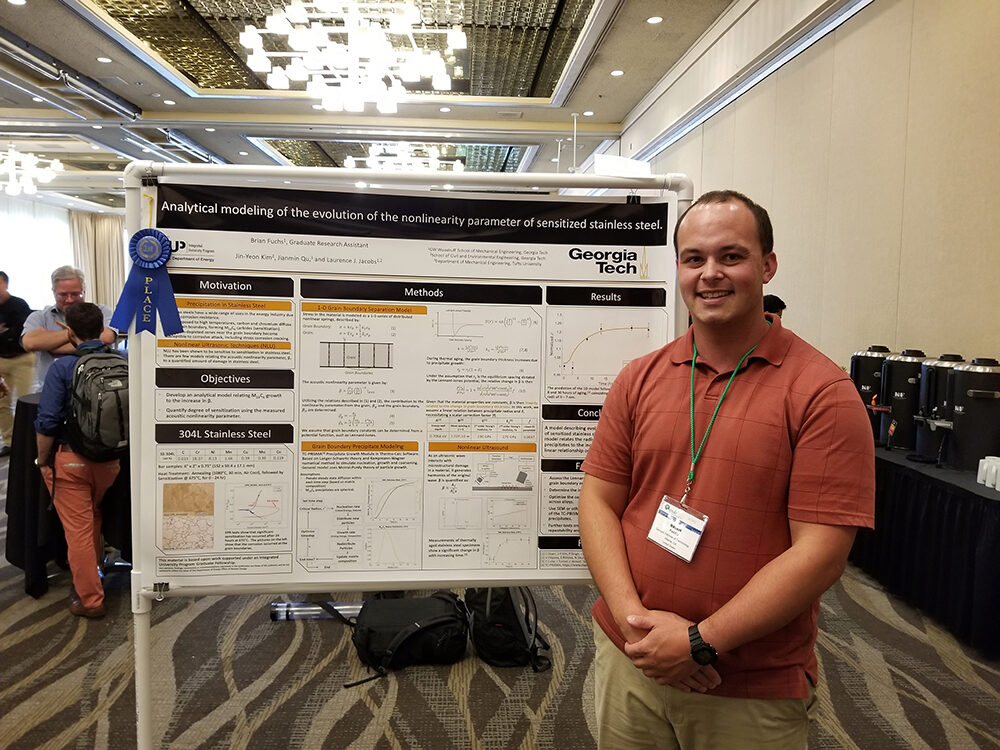
Brian Fuchs, who is a third year Ph.D. student in the Woodruff School, was awarded first place prize in the student poster competition at the 46th Annual Review of Progress in Quantitative Nondestructive Evaluation (QNDE) for his research on “Analytical modeling of the evolution of the nonlinearity parameter of sensitized stainless steel."
The event, which took place July 14-18, 2019 in Portland, Oregon, is the premiere international NDE meeting designed to provide an interface between research and early engineering through the presentation of current ideas and results focused on facilitating a rapid transfer to engineering development, bringing these technologies to the attention of researchers and users in national laboratories, industry and academia, including graduate students. QNDE is a highly interdisciplinary technology that involves the use of various techniques to detect both manufacturing and service related flaws in materials and structures which are important to safety in essentially all industries.
The annual QNDE Conference is hosted by QNDE Programs, and this year it was organized through teaming with the American Society of Mechanical Engineers (ASME), more specifically the Nondestructive Evaluation, Diagnostics and Prognostics (NDPD) Division and in partnership with the Center for Nondestructive Evaluation (CNDE), at Iowa State University.
"The Review of Progress in QNDE is the most influential international meeting in this research field," said Professor Laurence Jacobs, Kuchs' advisor. "There were over 30 student posters in the competition and Brian’s was selected as the best because of its high technical quality, plus Brian’s ability to defend his research results to the judges questions."
Fuchs, who earned his undergraduate degree at Iowa State University, is a past president of the Woodruff School's Mechanical Engineering Graduate Associaton (MEGA) and is a recipient of the Nuclear Energy University Program (NEUP) Fellowship. His research focuses on using nonlinear ultrasonic techniques to develop a diffusion model that accurately predicts precipitate growth in aging stainless steel. He is currently interning at Oak Ridge National Laboratory.
"I'm proud to have my work recognized by my peers and I look forward to further developing my research," said Fuchs. "Synthesis of damage detection models is essential in the development of new NDE techniques, and I am eager to move to the next stage of testing and modeling."
